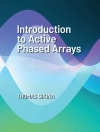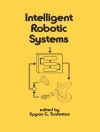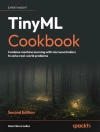This book introduces the FPGA technology used in the laboratory sessions, and provides a step-by-step guide for designing and simulation of digital circuits. It utilizes the VHDL language, which is one of the most common language used to describe the design of digital systems. The Quartus II, Xilinx ISE 14.7 and Model Sim software are used to process the VHDL code and make simulations, and then the Altera and Xilinx FPGA platforms are employed to implement the simulated digital designs. The book is composed of four parts. The first part of this book has two chapters and covers various aspects: FPGA architectures, ASIC vs FPGA comparison, FPGA design flow and basic VHDL concepts necessary to describe the design of digital systems. The second part of the book includes three chapters that deal with the design of digital circuits such as combinational logic circuits, sequential logic circuits and finite state machines. The third part of the book is reserved for laboratory projects carried out on the FPGA platform. It is a largely hands-on lab class for design digital circuits and implementing their designs on the Altera FPGA platform. Finally, the fourth part of this work is devoted to recent applications carried out on FPGAs, in particular advanced techniques in renewable energy systems. The book is primarily intended for students, scholars, and industrial practitioners interested in the design of modern digital systems.
قائمة المحتويات
Part I: Introduction to FPGA technology and VHDL language.- Chapter 1: Introduction to Field Programmable Gate Arrays (FPGA).- Chapter 2: Basic VHDL concepts.- Part II: Design digital circuits.- Chapter 3: Combinational logic circuits.- Chapter 4: Sequential logic circuits.- Chapter 5: Finite state machines.- Chapter 6: Memory Circuits.- Part III: Digital projects carried out on the FPGA platform.- Part IV : Recent research work and applications carried out on FPGA.












